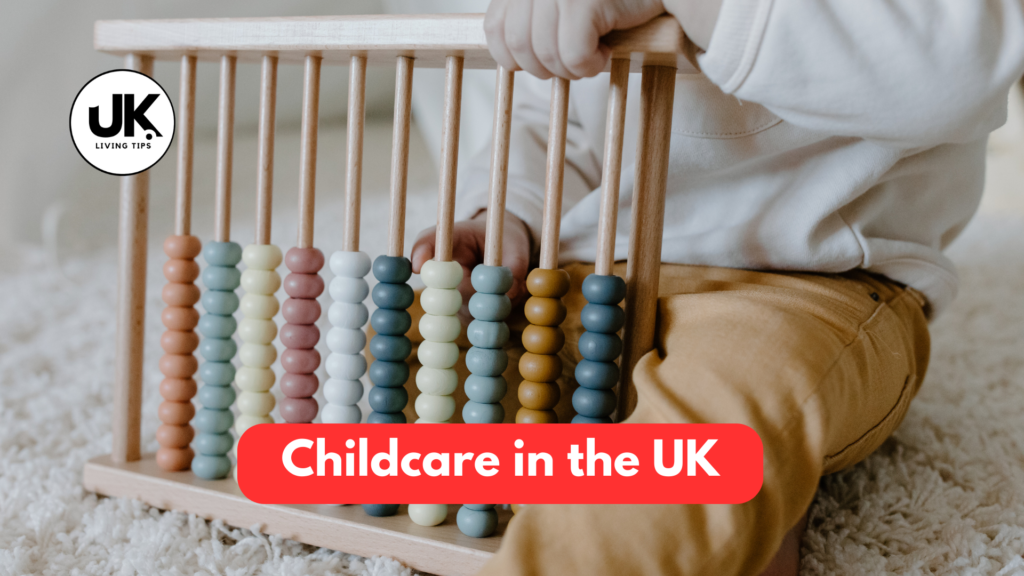Childcare in the UK: Choosing childcare is a big step for any parent, and it can feel a bit overwhelming with all the options out there. But don’t worry—you’re not alone! Understanding the different types of childcare available in the UK can help you find the best fit for your family. Whether you’re new to this or just exploring different options, we’re here to guide you through it.
In this article, we’ll break down the various types of childcare, look at the pros and cons of each, and help you think about what might work best for your little one. Let’s dive in!
Overview
Types of Childcare in the UK
In the UK, you’ve got a variety of childcare options, each with its unique benefits. Here’s a simple breakdown of what’s out there:
Nursery Schools
What Are Nursery Schools?
Nursery schools are a great place for kids to start their learning journey before they enter primary school. These schools focus on early childhood education and provide a structured environment where children can grow and develop.
Age Range and What They Offer
Typically, nursery schools cater to children aged 3 to 5 years. The curriculum is usually based on the Early Years Foundation Stage (EYFS), which means your child will be learning through play, developing social skills, and getting ready for school.
Why Choose a Nursery School?
Nursery schools offer a fun, safe, and educational environment. They help children make friends, learn new things, and prepare for the transition to primary school. Plus, the routine and structure can be beneficial for young kids.
Childminders
What Exactly Is a Childminder?
A childminder is someone who looks after children in their own home. They’re registered with Ofsted and follow the same EYFS guidelines as nurseries but in a more home-like setting.
Pros and Cons of Childminders
Childminders often care for a small group of children, which means your child can get more personalized attention. The home environment can also be comforting, especially for younger kids. However, because childminders work independently, the quality of care can vary.
Finding a Registered Childminder
You can find registered childminders through your local council or online directories. It’s a good idea to check their Ofsted rating, visit their home, and chat with them to see if they’re a good fit for your family.
Nannies
The Role of a Nanny
A nanny is someone who cares for your child in your home. Nannies can either live with you (live-in) or come to your home each day (live-out). They’re there to provide personalized care, which can include anything from preparing meals to helping with homework.
Live-In vs. Live-Out Nannies
Live-in nannies stay in your home, which can offer more flexibility if you need help outside of regular hours. Live-out nannies come to your home daily, which might suit families who prefer more privacy. The choice depends on what works best for your family’s routine and space.
What to Consider About Costs
Nannies are usually more expensive than other childcare options. You’ll need to factor in their salary, taxes, and possibly room and board if they’re live-in. It’s a bigger financial commitment, but for many families, the personalized care is worth it.
Au Pairs
What’s an Au Pair?
An au pair is typically a young person from another country who lives with your family and helps out with childcare and light housework. In exchange, they get free room and board, plus a small allowance.
Cultural Benefits of Hosting an Au Pair
One of the biggest perks of having an au pair is the cultural exchange. It’s a great way for your family to learn about another culture, and it can be especially beneficial if you’re interested in raising bilingual kids.
What Does an Au Pair Do?
Au pairs help with childcare, but they’re not professional caregivers. Their duties might include getting the kids ready for school, helping with homework, and doing some light housework. They usually work fewer hours than nannies and aren’t responsible for full-time care.
Preschools
Preschool vs. Nursery – What’s the Difference?
While nurseries and preschools are similar, preschools tend to focus more on preparing children for school. They often have shorter, more structured sessions that are designed to get kids ready for the next step in their education.
Educational Focus of Preschools
Preschools emphasize learning through play but with a bit more structure than nurseries. They cover basic literacy, numeracy, and social skills, helping kids feel confident and prepared for primary school.
How Preschools Prepare Kids for School
Preschools give kids a taste of what school will be like, with activities that mimic a school day. This helps them adjust to the idea of going to school, making the transition smoother and less daunting.
Family and Friends
Relying on Family and Friends for Childcare
Many parents turn to family and friends for childcare. It’s informal, flexible, and often more affordable than formal childcare options. Plus, it’s nice to know your child is with someone you trust.
Benefits and Challenges
Having a loved one care for your child can be comforting for both you and your child. However, it can also be tricky if boundaries aren’t clear or if the caregiver’s availability changes unexpectedly.
Legal Stuff You Should Know
If you’re paying a friend or family member for regular childcare, they might need to be registered with Ofsted, depending on how many hours they’re caring for your child and whether it’s in your home or theirs.
Wraparound Care
What is Wraparound Care?
Wraparound care covers the time before and after school, as well as during school holidays. It’s designed to help working parents who need childcare outside of standard school hours.
Different Types of Wraparound Care
This type of care can include breakfast clubs, after-school programs, and holiday camps. Schools, private providers, and community groups often offer these services.
Why It’s Great for Working Parents
If you’re juggling work and family life, wraparound care can be a lifesaver. It ensures your child is looked after during extended hours, giving you peace of mind while you’re at work.
After-School Clubs
Activities You’ll Find at After-School Clubs
After-school clubs offer a variety of activities, from sports and arts to homework help. These clubs keep kids engaged and learning in a fun, relaxed environment after the school day ends.
Social and Learning Benefits
Kids can make new friends, learn new skills, and enjoy themselves in a safe setting. After-school clubs can also boost their confidence and help them develop hobbies and interests.
Accessibility and Cost Considerations
These clubs are often run by schools or local community centers. Costs can vary, with some clubs being free and others charging a fee. It’s worth looking into what’s available near you.
Read Also: What is a Skilled Worker Visa in the UK in 2024
Holiday Clubs
What Are Holiday Clubs?
Holiday clubs provide childcare during school breaks, offering a range of activities while you’re at work. They’re like summer camps but available throughout the year.
Types of Programs You Can Find
From sports and adventure activities to arts and crafts, holiday clubs cater to different interests. You can choose a program that matches your child’s hobbies or introduces them to something new.
How to Pick the Right Holiday Club
When choosing a holiday club, think about the activities offered, the staff’s qualifications, and the club’s reputation. It’s also a good idea to visit the club beforehand to see if it feels like a good fit for your child.
Government Assistance and Schemes
Free Childcare Entitlement
In the UK, the government offers free childcare for eligible children, usually for those aged 3 to 4 years. You can get up to 30 hours of free childcare per week, depending on your situation.
Childcare Vouchers
While the childcare voucher scheme is now closed to new applicants, existing users can still benefit. It allows parents to pay for childcare from their pre-tax salary, saving money in the process.
Tax-Free Childcare
Under the Tax-Free Childcare scheme, the government adds £2 for every £8 you pay into an online account. This money can be used to pay for approved childcare services.
Factors to Consider When Choosing Childcare
Cost Considerations
Childcare costs can vary a lot depending on the type of care, where you live, and how many hours you need. It’s important to budget for these expenses and look into any financial assistance that might be available.
Location
The location of the childcare provider is key. Whether it’s close to home or work can make a big difference in your daily routine, especially when it comes to drop-offs and pick-ups.
Quality of Care
Quality is crucial. Look for settings with good Ofsted ratings, experienced staff, and a nurturing environment where your child can thrive.
Flexibility
Flexibility is important, especially if you have an unpredictable work schedule. Some providers offer more adaptable hours and services, so it’s worth considering this when making your choice.
Ensuring Quality Childcare
Check Those Ofsted Ratings
Ofsted ratings can give you a good idea of the quality of care provided. These ratings cover various factors, including the effectiveness of the curriculum, the safety of the environment, and the overall development of the children.
Why You Should Visit Childcare Settings
Visiting a childcare setting allows you to see firsthand how it operates. You can meet the staff, observe how they interact with the children, and get a feel for the environment.
Don’t Forget to Ask for References
Talking to other parents who have used the provider can give you valuable insights. Their experiences can help you gauge the quality and reliability of the care on offer.
Visit: childcare application online
Conclusion
Choosing the right childcare is a big decision, but it doesn’t have to be stressful. By understanding the different options available and considering factors like cost, location, and quality, you can find the best fit for your family. Whether you opt for a nursery, childminder, nanny, or another form of care, the most important thing is that your child feels safe, happy, and nurtured.
FAQs
What’s the difference between a nanny and a childminder?
A nanny takes care of your child in your home, either living with you or coming daily. A childminder cares for children in their own home and usually looks after a small group of kids from different families.
How much does childcare cost in the UK?
Costs vary widely. For example, nurseries can charge anywhere from £40 to £70 per day, while nannies might cost over £500 per week. The price depends on the type of care, your location, and the hours needed.
When can children start nursery in the UK?
Children can start nursery as young as 6 weeks, though most nurseries accept kids from around 3 months to 4 years old. The exact age will depend on the nursery’s policies.
Are there government schemes to help with childcare costs?
Yes, the UK government offers several schemes, including Free Childcare Entitlement, Tax-Free Childcare, and support through Universal Credit, to help with the cost of childcare.
How do I find a reputable childcare provider?
Start by checking Ofsted ratings, ask for references from other parents, and visit the setting to meet the staff and see the environment.




Pingback: School Holidays UK 2024 - uklivingtips.com
Pingback: 12 Tips to Prepare for UK Winters in 2024/2025 - uklivingtips.com
Pingback: A Complete Guide to Childcare Options for Expats in the UK in 2024/2025 - uklivingtips.com